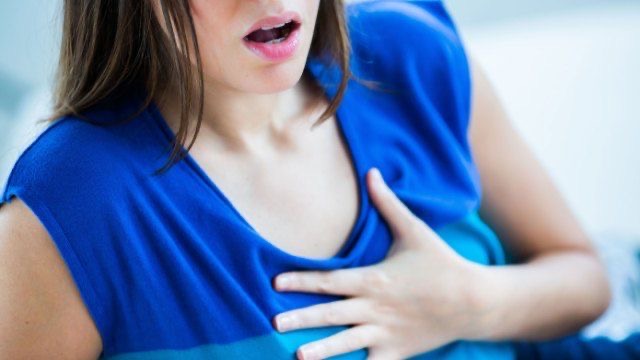Have you ever listened to the news on the radio or read the newspaper about an old Mama who died from a heart attack while driving or a middle-aged mother of two who died in her office while clutching her chest? You must have wondered what might have caused the heart attack or what could have stopped their hearts from beating.
Heart attacks can be caused by specific ailments or health conditions pertaining to the heart. Heart attacks can be prevented and even cured if the patient is taken to the hospital in time and attended to immediately. In other cases, it could escalate and lead to death!
Stay with me throughout this article to learn more about heart attack, its causes, symptoms, and prevention.
Table of Contents
Meaning of Heart Attack
Heart attack, also known as Myocardial Infarction, is a medical emergency caused by a severe reduction or blockage of blood flow to the heart’s muscles. The blockage of blood flow is usually caused by atherosclerosis (the buildup process of fatty, cholesterol-containing deposits called plaques).
In most cases, a plaque can rupture and form a blood clot that blocks the flow of blood to the heart. This could destroy or damage part of the heart muscle or lead to the death of tissue in the heart muscle.
Heart attack is very common to both genders, with an estimated 1.5 million cases per year in Nigeria. Heart disease could also lead to a heart attack, and it is advisable that once symptoms persist, affected persons should go for medical diagnosis, lab tests, imaging and treatment.
Early stages of heart attack symptoms can be resolved within days to weeks, but critical situations need emergency care.
Read also: Morning Routines to Start a Healthy Day.
Causes of Heart Attack in Women
Lifestyle choices such as smoking, excessive intake of alcohol, use of hard drugs, and abusing them, as well as several medical conditions such as high blood pressure and heart diseases, can put women at high risk of having a heart attack.
Other causes of heart attacks include:
- An unhealthy diet
- Diabetes
- Stress and depression
- Excess weight
- Physical inactivity
- High LDL (low-density lipoprotein) Cholesterol
- High Blood Sugar
Each of the above-listed causes puts women at a higher risk of having a heart attack as women are more likely to have a heart attack that is not caused by coronary artery disease.
Are you a writer or an aspiring one? Intern at Insight.ng to sharpen and hone your writing skills.
Heart Attack Symptoms in Women
There are several symptoms of heart attack in women, although some women might have no symptoms while others might have:
-
Coronary artery disease (CAD)
The leading cause of heart attacks is coronary artery disease, one of the most common heart diseases and the leading cause of women’s death. It is caused by a plaque or blood clot in the walls of the arteries that supply blood to the heart and other parts of the body.
Due to hormonal changes, women are prone to coronary artery disease after menopause. Coronary artery disease is caused by unhealthy diet, physical inactivity, and smoking. It could also be hereditary. A family record of Coronary artery disease could increase the risk of having the disease.
-
Heart failure
This is a health condition in which the heart is too weak to pump blood to other organs that require blood for support. It is a severe condition, although it does not mean the heart has stopped beating.
-
Arrhythmia
This refers to the beating of the heart in an irregular pattern (too slow or too fast). A typical example of Arrhythmia is atrial fibrillation (an irregular but rapid heart rate that causes poor blood flow; it’s a condition whereby the heart’s upper chambers beat out of coordination with the lower chambers).
-
Chest pain
Chest pain is also one of the significant symptoms of heart attacks. It involves persistent discomfort in the left side of the chest or at the center that lasts for more than a few minutes. It is usually a feeling of uncomfortable pressure, fullness, squeezing, or pain in the chest region.
-
Shortness of breath
Alongside chest pain comes shortness of breath; it could come either before or after chest pain. Other symptoms of a heart attack in women include;
- Breaking out in cold sweat.
- Feeling weak, lightheaded, or faint.
- Pain in the upper abdomen or back.
- Angina: usually felt as a dull or heavy discomfort or ache in the chest.
- Pain in the neck, jaw, or throat.
- Pain in one or both arms or shoulders.
- Excessive tiredness.
These symptoms may happen when one is resting or active. However, its occurrence varies in different individuals.
Read also: Dairy Products and Your Diet: Types, Benefits and Side Effects.
How to Prevent Heart Attack in Women
Abstinence from confident lifestyle choices, and most importantly, regular medical checkups could lower the risk of having a heart attack in women. Heart attack could also be prevented by:
- Getting at least 150 minutes of physical activity every week.
- Knowing your blood pressure, uncontrolled blood pressure can result in heart attacks, stroke, kidney failure, and dementia.
- Making healthy food choices and ensure your diet is balanced.
- Reducing your level of alcohol consumption.
- Checking your blood sugar level from time to time.
- Constantly monitoring your cholesterol level.
- Giving up smoking (if you are a smoker, please quit! If you don’t smoke, please don’t start at all).
- Finding healthy ways to cope with stress.
- Keeping to a healthy weight.
Healthy Foods That Can Lower The Risk of Heart Attack in Women
-
Walnuts
Walnuts are a good source of fiber, omega-3s, and micronutrients such as Magnesium, Copper, and Manganese. They also contain alpha-linolenic acid, which research has proven to help with heart arrhythmia and improve heart health.
-
Fish and seafood
Adding sources of healthy fats such as Olive oil, Olives, and fatty fish, which are rich in protein, contain fewer calories, and have healthy omega-3 fatty acids, can lower risks of health diseases and reduce blood pressure.
-
Fruits and vegetables
Fruits and vegetables are an essential part of our diet, as they always say; eat fruits for a fruitful life! Eating at least five portions of fruits and vegetables daily would help reduce your risk of heart disease and strengthen your immune system. Fruits and vegetables are rich in potassium, folic acid, and vitamins A, C, and E.
-
Whole grain
Whole grains are rich in fiber which helps maintain cholesterol levels and reduce the risk of heart disease. Studies have shown that regular cholesterol consumption is associated with lower cholesterol and systolic blood pressure and improved heart health.
-
Cherries
They are known to be rich in anthocyanins, an antioxidant that helps to reduce stroke and help the heart function properly. Sweet cherries, dried cherries, and sour cherries are all good for the heart.
-
Beans
Mild, tender black beans are rich in folate, antioxidants, magnesium, and heart-healthy nutrients that can help lower blood pressure. Beans, in general, are known to contain resistant starch, which can help lower cholesterol levels, reduce blood pressure, and improve glycemic control.
Read also: The Relevance of Nutrition to Mental Health.
Conclusion
As the saying goes, “If you’re not informed, you’ll be deformed.” This article discusses the meaning, causes, symptoms, and prevention of heart attacks, especially in women. It’s in your best interest to keep these things in mind and also share them with those around you. Stay healthy!
Do you like what you’ve just read? Subscribe to our newsletter here to receive notifications of more valuable posts like this.
Edited by Oluwanifemi Akintomide.
About Author
-
Obafaiye Precious is a content writer by skill. I love to articulate ideas, thoughts and memories into words, and am a deep lover of poetry. I'm Nigerian by birth, I love to write about my country and Africa at large!
I hope to become one of the best professional content writers.
So help me God!
Latest entries
 WomenApril 19, 2024Heart Attack in Women: Meaning, Causes, Symptoms and Prevention
WomenApril 19, 2024Heart Attack in Women: Meaning, Causes, Symptoms and Prevention
 CareerFebruary 6, 2024Industrial Design as a Course in Nigeria: The Hidden Treasures
CareerFebruary 6, 2024Industrial Design as a Course in Nigeria: The Hidden Treasures TechnologyJanuary 7, 2024A Beginner’s Guide to Quantum Computing
TechnologyJanuary 7, 2024A Beginner’s Guide to Quantum Computing

